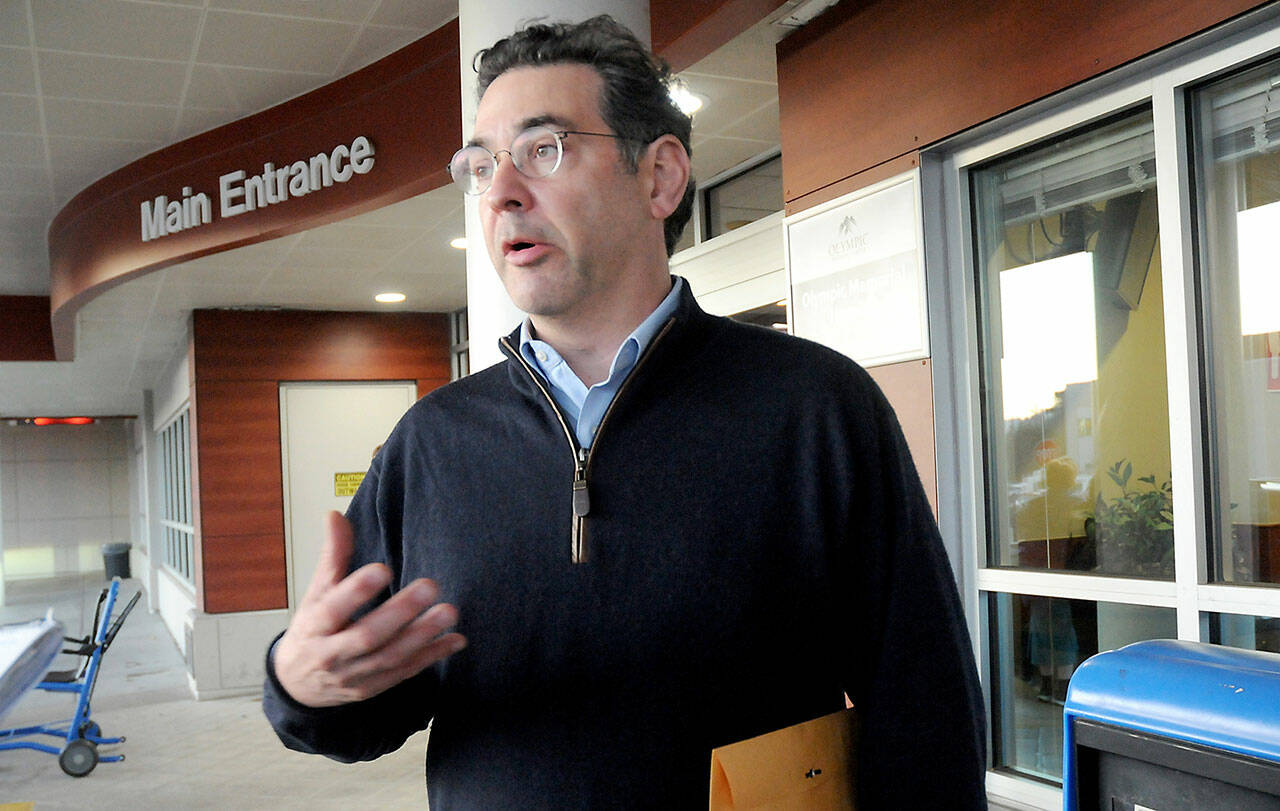The second-highest administrator at the Centers for Medicare & Medicaid Services got a first-hand look at the challenges facing rural hospital districts when he visited Olympic Medical Center in Port Angeles.
Jonathan Blum, the principal deputy administrator and chief operating officer at CMS, met with Chief Executive Officer Darryl Wolfe and other OMC executives, as well as local healthcare leaders, on Nov. 14 during a two-day tour of rural hospitals on Olympic Peninsula to talk to providers and get feedback on CMS programs.
Before arriving in Port Angeles, Blum and his team visited Jefferson Healthcare in Port Townsend, where he toured its dental clinic, the first rural clinic in the state focused on providing dental services to Medicaid patients.
Blum said rural hospitals faced two primary problems that exerted financial pressure on their bottom lines: more patients who are getting older and staff shortages. OMC is experiencing both.
“Rural areas are aging more rapidly than the rest of the country, so they’re far more dependent on Medicare and Medicaid than non-rural areas,” Blum said.
“We saw it here, we’re seeing throughout the country, which means that we need to think more about what’s the right financial model.”
Although hospitals in urban areas struggle to find staff, he said, rural hospitals are particularly vulnerable to workforce shortages.
“It’s harder to have physicians, nurses, pharmacists,” Blum said. “With smaller populations, it’s more difficult to find the staff you need. A population that’s older, they have more healthcare needs and they have different healthcare needs.”
When the two come together, a hospital’s financial problems are compounded, he said.
Blum said CMS is talking to rural hospitals like OMC to understand how factors like geographical isolation, low populations and relatively high operational costs are impacting them.
“We’re trying to find the right model that’s going to sustain healthcare services, that’s going to push for better services,” Blum said.
“That was a huge part of the conversation that we had here today.”
One step CMS had taken was monitoring more closely Medicare Advantage, the plan offered by private insurance companies as an alternative to original Medicare. The goal was to improve protections for beneficiaries and provide a fix for delayed and denied coverage that negatively impacted hospitals.
Blum said CMS did not want to steer Medicare beneficiaries toward either fee-for-service or a private plan.
“We want them to choose the option that delivers the best value to them,” Blum said. “Over the last several years plans have put in place policies that offer great benefits to the individual, like better dental care, better vision care, better hearing [care].
“But we’re hearing a lot of concerns regarding the core benefits that Medicare beneficiaries are entitled to that are becoming much more difficult to get access to,” he added.
Blum said CMS was imposing tougher regulations on Medicare Advantage so beneficiaries and hospitals did not have a fight at every turn.
“We’re holding them accountable for too much friction, for too much prior authorization, for too much care denial,” Blum said.
Blum said one visible sign of CMS’s tighter oversight of Medicare Advantage was fewer hard-sell television advertisements during the open-enrollment period than runs from Oct. 15-Dec. 7.
“This time last year you were bombarded with ads, but you don’t see them very often right now. That’s due to CMS policy,” Blum said.
“We have cracked down on the number, the volume, the accuracy of television ads. That’s just one small example of what we’re doing.”



